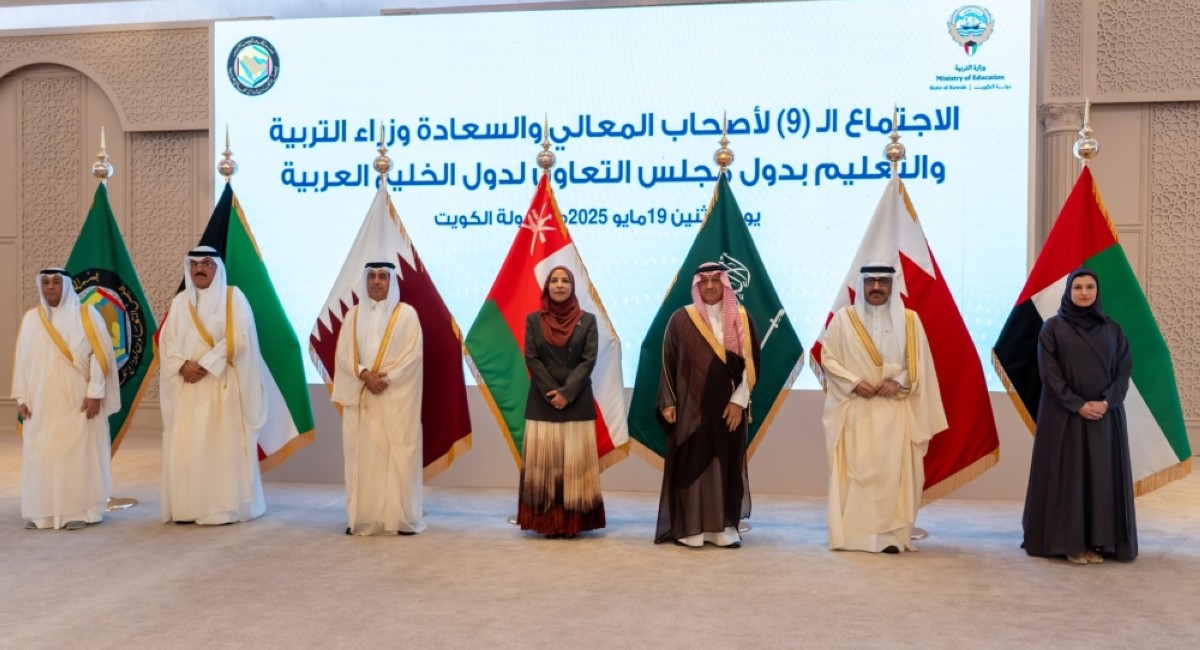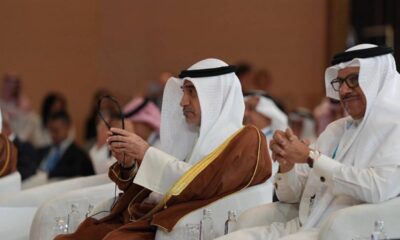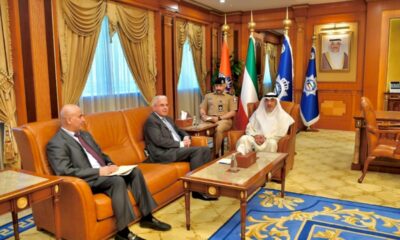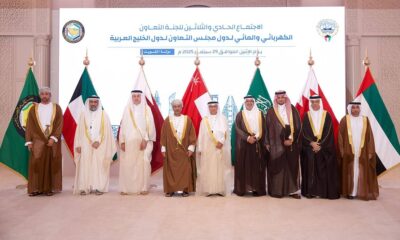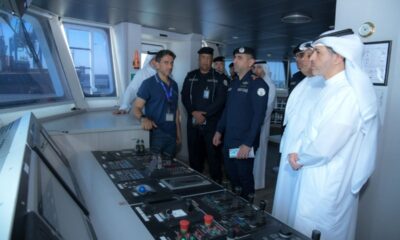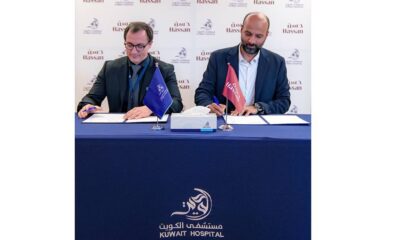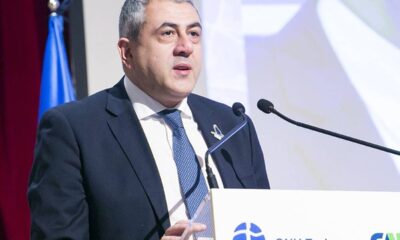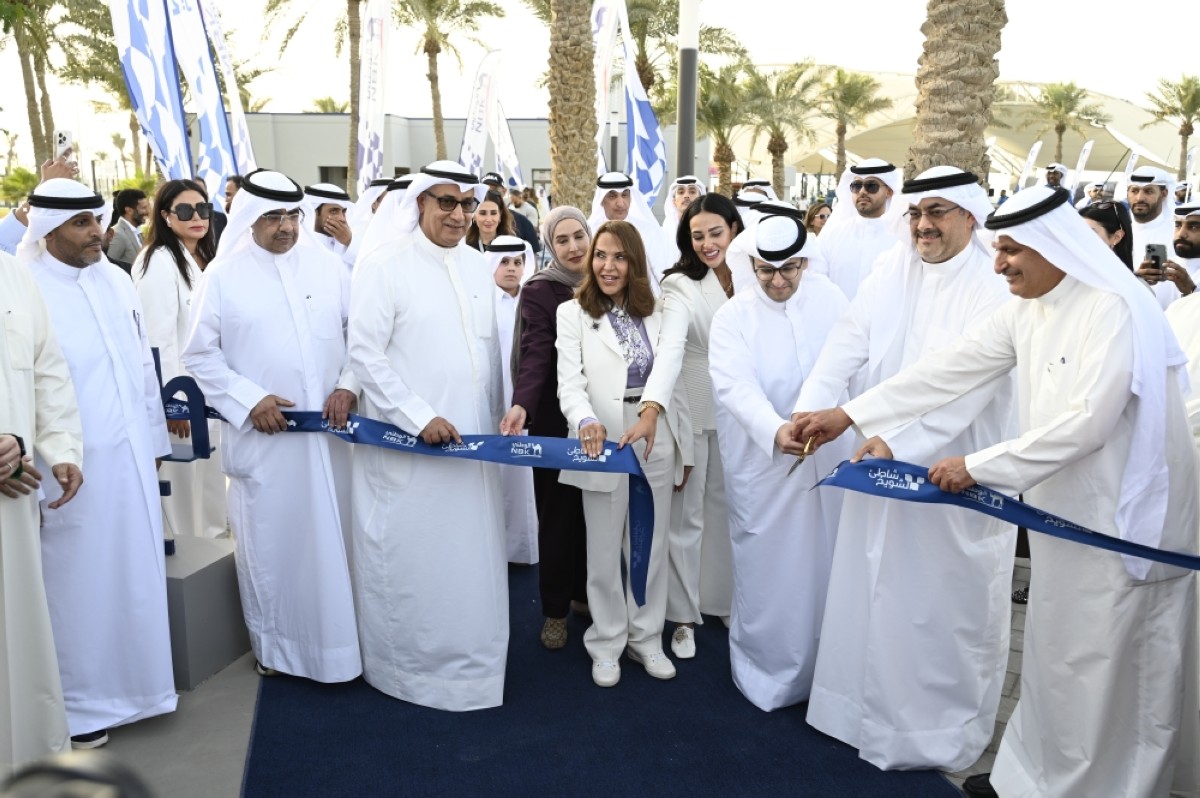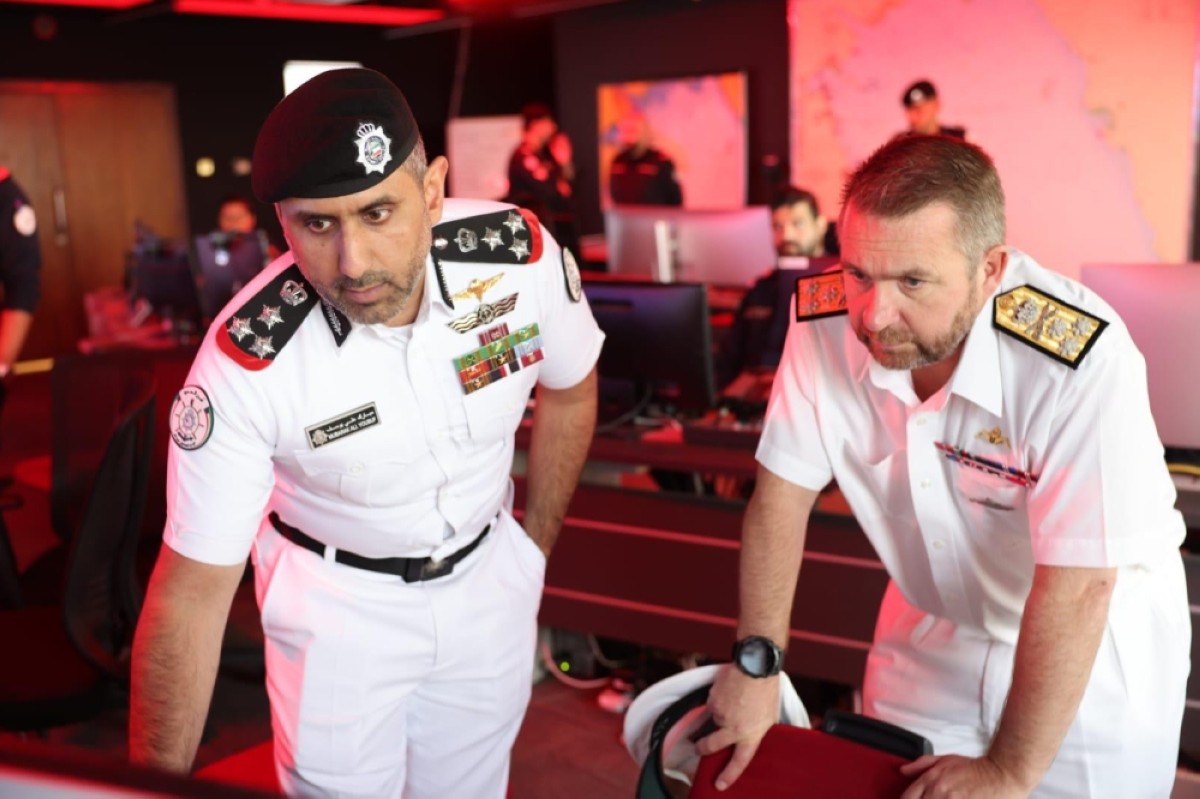KUWAIT: Minister of Education Jalal Al-Tabtabaei announced the approval of three Kuwaiti initiatives during the ninth meeting of the GCC Education Ministers’ Committee, held in Kuwait on Monday in the presence of the Arab Bureau of Education for the Gulf States and the GCC Secretariat General. Speaking to KUNA following his chairmanship of the session, Al-Tabtabaei revealed that the endorsed initiatives include the unification of the educational system across Gulf states, the organization of a joint sports championship for male and female students, and the exchange of distinguished educators and talented students among GCC countries.
The minister underscored Kuwait’s commitment to advancing regional educational cooperation, stating that the initiatives aim to support sustainable development goals and align with the aspirations of Gulf societies. He affirmed Kuwait’s dedication to keeping pace with global educational advancements and enhancing the competitiveness of the region’s academic systems on both regional and international fronts. Al-Tabtabaei expressed his gratitude to Qatar for its efforts and leadership during the previous session, noting its vital role in promoting joint Gulf action in the educational sector.
For his part, GCC Secretary-General Jasem Al-Budaiwi emphasized the importance of the committee’s agenda, noting that the discussed topics directly impact the future of public education in the region. Among the key resolutions adopted was the development of a unified GCC strategy to combat drug abuse, which will be incorporated into school curricula across member states to raise student awareness. Al-Budaiwi also highlighted additional proposals presented by member states. Kuwait introduced initiatives on youth sports and unifying the educational framework, while Saudi Arabia put forward a plan to share its national education development strategy with GCC partners.
Minister of Education Engr Sayed Jalal Al-Tabtabaei inaugurates the 9th meeting of the Ministers of Education of the Gulf Cooperation Council countries.- KUNA photos
Assistant Undersecretary for General Education at the Ministry of Education, Mansour Al-Dhafiri
Secretary-General of the Gulf Cooperation Council Jassim Al-Budaiwi
Meeting of the Committee of Ministers of Higher Education and Scientific Research of the Gulf Cooperation Council countries.
Meanwhile, Director of the Arab Bureau of Education for the Gulf States, Dr Mohammad Al-Muqbil, confirmed the adoption of new strategic directives for the Bureau’s operations. He noted that the Bureau and the GCC Secretariat have been entrusted with implementing a set of tasks aligned with the collective vision of Gulf education ministries. Al-Muqbil commended Kuwait’s efforts in hosting the meeting and its continued dedication to educational development.
In a related event, Minister of Higher Education and Scientific Research Dr Nader Al-Jallal stressed the importance of advancing digital transformation and strengthening cybersecurity infrastructure in the higher education sector to ensure the resilience and quality of academic services. His remarks came during the 25th meeting of the GCC Committee of Ministers of Higher Education and Scientific Research, also held in Kuwait. Al-Jallal highlighted the central role of scientific research and innovation in driving the knowledge economy, calling for broader partnerships among universities in the Gulf region to foster a dynamic academic environment that supports scientific advancement and sustainable development.
He emphasized the need for unified educational frameworks capable of responding to rapid global changes, stressing that aligning higher education outcomes with labor market demands is no longer optional but a strategic necessity. Al-Jallal conveyed the greetings of His Highness the Amir Sheikh Meshal Al-Ahmad Al-Jaber Al-Sabah and His Highness the Crown Prince Sheikh Sabah Al-Khaled Al-Hamad Al-Sabah to attendees, wishing success for the proceedings and the continued progress of higher education across the region.
He also extended his thanks to Qatar, represented by Minister of Education and Higher Education Lolwah Al-Khater, for its leadership in the previous session. Secretary-General Al-Budaiwi reiterated the critical role of higher education and research in national development, describing them as pillars of societal advancement and prosperity. He noted the Gulf states’ strategic prioritization of education, citing significant achievements in institutional growth, student enrollment, and scientific output.
He reported that the number of higher education institutions in the GCC has surpassed 300, serving more than 1.8 million students. He also pointed to increased government spending on education and research, as well as expanded partnerships with leading global universities and the establishment of national research councils. Al-Budaiwi extended his appreciation to His Highness the Amir of Kuwait for supporting joint Gulf initiatives, and thanked Dr Al-Jallal and the Kuwait Ministry of Higher Education for their warm hospitality and effective organization of the meeting. — KUNA





